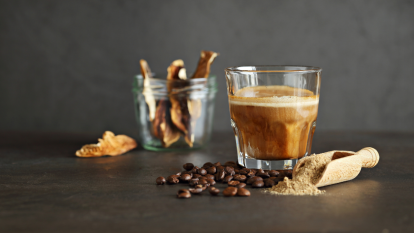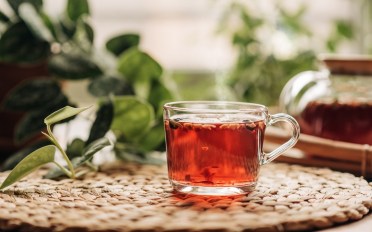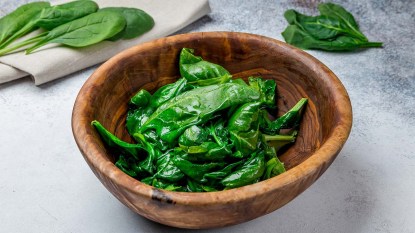Quercetin for Heart Health: MD Says It’s Key To Lowering Blood Pressure + Cholesterol — and It Costs Just Pennies a Day!
Plus the onion extract can lower the amounts of histamine in your system by 81% to end allergy symptoms

Wouldn’t it be amazing if there were a simple way to to strengthen your heart without overhauling your diet or breaking a sweat at the gym? There is! Doctors say quercetin, an antioxidant compound found in certain fruits and vegetables, is key to improving your heart health. The reason: It lowers your cholesterol and blood pressure naturally to ease strain on your ticker, plus it curbs stroke risk. And the the health-boosting benefits don’t end there. Research proves quercetin also tames allergy symptoms, soothes pain, boosts immunity and more. (Is there anything it can’t do?) Read on to learn how to reap the rewards of this multitasking antioxidant.
What is quercetin?
Quercetin is a type of antioxidant known as a flavonoid that fights cell-damaging free radicals. It’s found in high concentrations in onions (especially red and yellow varieties) and apples (especially apple skins). You can also find the compound in foods such as berries, cherries, tomatoes, leafy greens and broccoli. What does this mean when it comes to strengthening your heart? As Cameron Rokhsar, MD, professor of dermatology at Mount Sinai Hospital, explains, quercetin has the potential to reduce inflammation, lower “bad” LDL cholesterol and curb high blood pressure — which adds up to a healthier heart and a lower risk of having a stroke. (Click through to learn how apple cider vinegar improves heart health, too, and how to reduce your risk of a silent stroke.)
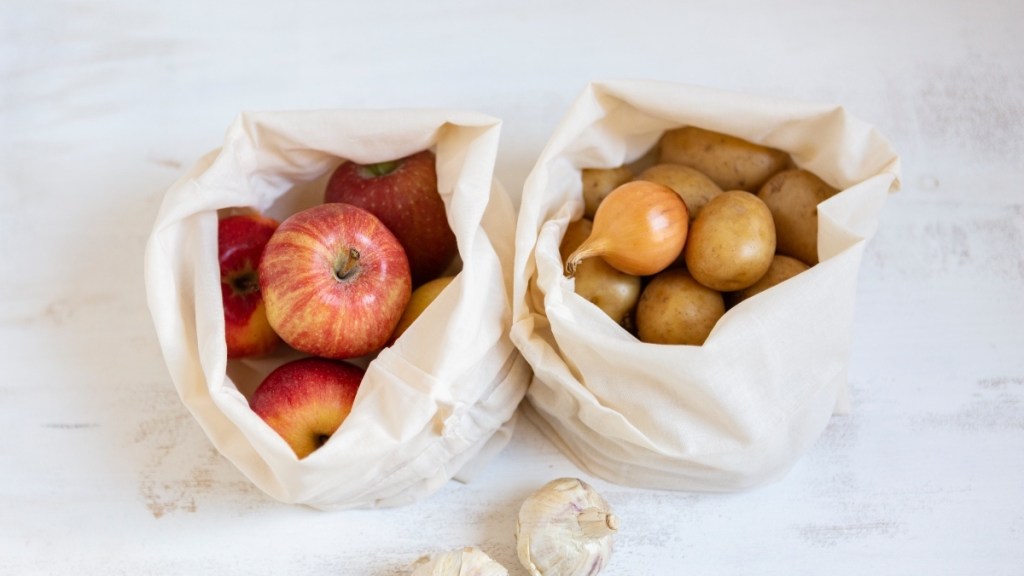
Related: How to Prevent Heart Disease: These 5 MD-Backed Shortcuts Are Too Easy Not to Try
How quercetin improves heart health
When it comes to improving heart health, quercetin works in multiple ways. Here’s where the compound really shines.
1. Quercetin reduces uric acid levels
You may have heard of uric acid being the culprit behind gout pain. But it turns out elevated levels of this compound can also raise the risk of stroke as well as unexplained weight gain.
The body produces uric acid when it breaks down fructose from food. This can cause crystals to form in blood vessels, increasing the risk of clots. “While we’ve known for decades about how uric acid increases the risk of gout, this new understanding about the role it plays in stroke is really encouraging, since there’s so much we can do to bring our uric acid levels under control,” assures says David Perlmutter, MD, author of Drop Acid: The Surprising New Science of Uric Acid. “In fact, there’s great research showing how the nutrient quercetin can substantially lower uric acid levels.”
Quercetin works by attacking an enzyme key to uric acid production, which helps keep your levels in check so that they don’t harm your heart. One way to reap the benefits? Add a few quercetin-rich apples to your diet. According to a study in Stroke: Journal of the American Heart Association, folks who ate plenty of “white-flesh” fruits and veggies — such as apples, pears, bananas and cauliflower — reduced their stroke risk 52%. Researchers found every 25 grams of white fruit and veggies people ate translated to a 9% reduction in stroke risk.
Also smart: Supplementing with 500 mg. of quercetin and 100 mg. of luteolin daily. “Quercetin and luteolin are home runs because they function exactly like the gout drug Allopurinol to lower uric acid,” says Dr. Perlmutter. (Click through to learn if you should take aspirin for stroke prevention and to learn how heart trouble can sometimes manifest as heartburn.)
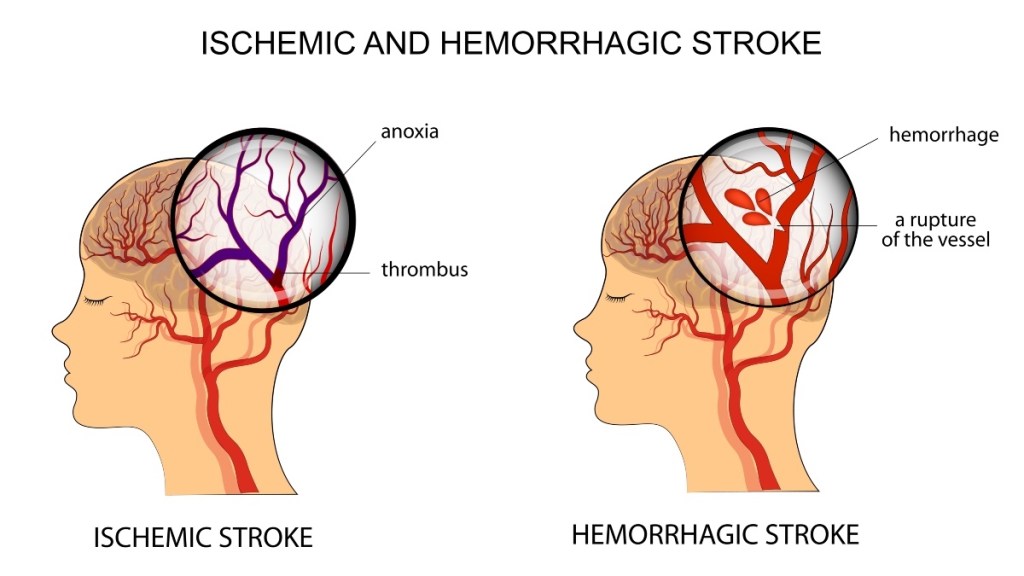
2. Quercetin lowers LDL cholesterol
Cholesterol-lowering statins are the most prescribed drug in the US, according to GoodRx.com. But research in JAMA Internal Medicine shows they’re less effective than once thought, cutting heart attack and stroke risk by less than 1%. While the drugs can still be helpful, you can also rein in levels of “bad” LDL cholesterol naturally with the help of quercetin.
Quercetin works by blocking the liver’s production of cholesterol and reducing how much cholesterol is absorbed in the intestines, explains Trista Best, RD. In fact, research in the British Journal of Nutrition found that taking quercetin daily noticeably lowered LDL levels within six weeks. An easy way to get your quercetin fix: Diced up an apple (skin on) and toss it over overnight oats or oatmeal and top with a sprinkle of cinnamon. Click through for a delicious drink to lower cholesterol naturally.
3. Quercetin lowers high blood pressure
Folks who have a reading of 120/80 mmHg or less are considered to have healthy blood pressure. But when those numbers creep upward, it cause trouble. Elevated BP readings of up to 129/80 mmHg are considered prehypertension, whereas readings above 130/80 mmHg are deemed hypertension. That’s a problem when it comes to your ticker, since high blood pressure makes your heart work harder. Plus it can damage the lining of arteries, making it easier for fatty plaques to build up and clog blood flow. Quercetin to the rescue!
Research in the British Journal of Pharmacology suggests that increasing your daily quercetin intake can lower your blood pressure in a big way. Researchers found quercetin reduces your systolic (top number) blood pressure up to 18% and your diastolic (bottom number) blood pressure up to 23% within 5 weeks. Tip: Savor onion skin broth to reap the benefits. Onion skins contain 77 times more BP-lowering quercetin than onion flesh, according to research in the Journal of Cleaner Production. (Click through for a simple way to make onion peel tea and onion skin broth.)
Related: Why Doctors Recommend Women Eat More Sunflower Seeds — 4 Big Health Benefits
More health benefits of quercetin
Aside from improving your heart health, quercetin plays a role in everything form easing allergies to reducing pain.
1. Quercetin reduces allergy symptoms
New York City allergist Jennifer Collins, MD, estimates more than 1 in 4 women with allergies don’t know they have them, as symptoms often don’t appear until later in life. “Allergies are becoming increasingly common for reasons we don’t fully understand,” she says. “In fact, many of my female patients think their allergy symptoms, like fatigue and fog, are just part of daily stress.”
Instead of reaching for antihistamines, which can trigger weight gain and increased appetite in some women, reach for nature’s allergy cure: quercetin. “It works by calming the mast cells that trigger allergic reactions,” says David C. Leopold, MD, network medical director of Integrative Health and Medicine at Hackensack Meridian Health. Good sources of quercetin include apples, onions, broccoli, blueberries and green tea. “As an allergy sufferer, I like managing as many symptoms as possible through diet, and we typically can get up to 40 mg. of quercetin daily from fruits and vegetables,” he says. To reap the most benefits, he recommends also supplementing with 300 mg. quercetin twice daily.
Further proof it works: Research in the Journal of Herbal Pharmacotherapy found quercetin makes membranes of immune cells more resistant to allergens. This blunts cells’ release of symptom-triggering histamine by 81%. And a separate study in the European Review for Medical and Pharmacological Sciences found supplementing with quercetin can ease sneezing, runny nose and eye irritation by 50%.
Related: This Simple Diet Tweak Helped One Woman Restore Her Energy in Just a Week
2. Quercetin tames joint aches and pains
Whether it’s stiff knees or an achy back, anti-inflammatory quercetin can help. The compound shuts down the pain-trigger enzyme known as COX-2 and encourages the growth of healthy new joint cartilage. And simply working more quercetin-rich foods into your diet is enough to tame pain now plus cut your risk of future aches in half, according to research in the journal Krager.
And quercetin is especially helpful when it comes to back pain. “Dwindling estrogen levels as women age lead to the degeneration of spinal discs, which can irritate nerve roots, causing pain,” says spinal surgeon Ken Hansraj, MD, author of Watch Your Back: Nine Proven Strategies to Reduce Your Neck and Back Pain Without Surgery. In fact, more than 500,000 Americans undergo back surgery every year. “But many of them can be saved from surgery with better care of their backs,” says Dr. Hansraj. And that care can be as simple as upping your intake of quercetin-rich foods. “Quercetin is an antioxidant with strong anti- inflammatory benefits.”
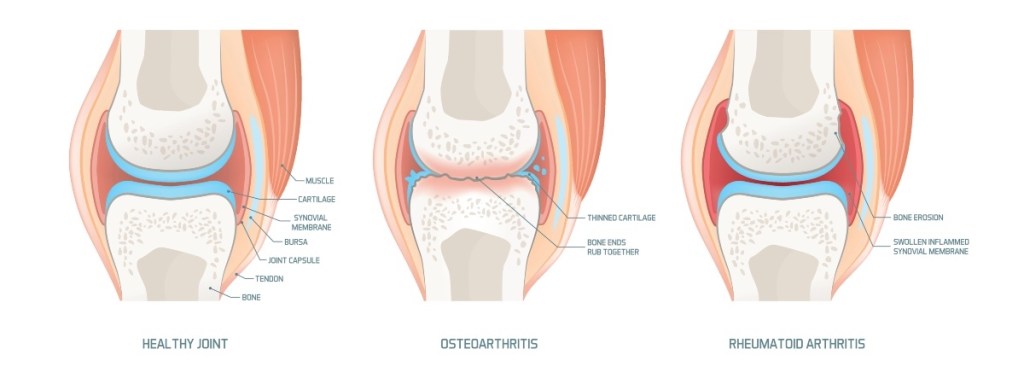
Consider pairing quercetin with bromelain if you suffer from joint pain
While quercetin plays a big role in tamping down pain, a pineapple enzyme known as bromelain can boost the benefit even more. In a study in Phytomedicine, scientists found taking 400 mg. of bromelain twice daily reduced joint pain by 59% in four weeks. Bromelain breaks down protein-coated molecules responsible for pain, explains Michelle Schoffro Cook, PhD. Eating fresh pineapple can help, but a pill offers a more concentrated bromelain dose. For relief that sets in within 20 minutes, she advises taking 2,000 mg. bromelain daily. Tip: Bromelain acts a digestive enzyme when taken with food. To coax it into working as an all-body healer, take your supplements on an empty stomach. One to try: NOW Supplements Bromelain (Buy from Amazon.com, $22.65).
3. Quercetin boosts immunity
Sail through sick season free of colds, viruses and even COVID? Yes! Quercetin is one of the best natural ways to shore up your immune system, plus speed recovery if you do fall ill. It neutralizes harmful free radicals, tamps down inflammation and nourish the beneficial bacteria in your gut that ward of bacterial and viral invaders. Fred Pescatore, MD, advises taking 500 mg. quercetin daily as a preventative measure.
If you do develop symptoms that could signal COVID, Dr. Pescatore recommends adding another 500 mg. qercetin daily. In a study in the International Journal of General Medicine, COVID patients who took 1,500 mg. of quercetin daily recovered up to 7 days faster than those who didn’t supplement.
Related: Zinc and Quercetin Dramatically Boost Your Immunity — And They’re Better Together
4. Quercetin strengthens bones
Calcium may get all the credit for keeping your skeleton strong, but research proves quercetin is a powerful bone-booster, too. Scientists reporting reporting in The American Journal of Clinical Nutrition found that folks who ate 10 mg. of quercetin daily, the amount found in one apple, cut their risk of frailty by 20%. And doubling the dose lowered their risk by 35%. Frailty is characterized by weaker bones that reduce mobility and increase fracture risk. But quercetin is known to strengthen bones and ward off osteoporosis, which is key for staying strong and mobile as we age. (Click through to our sister publication for more easy ways to reduce your osteoporosis risk and to learn about the side effects of Fosamax and other osteoporosis medications)
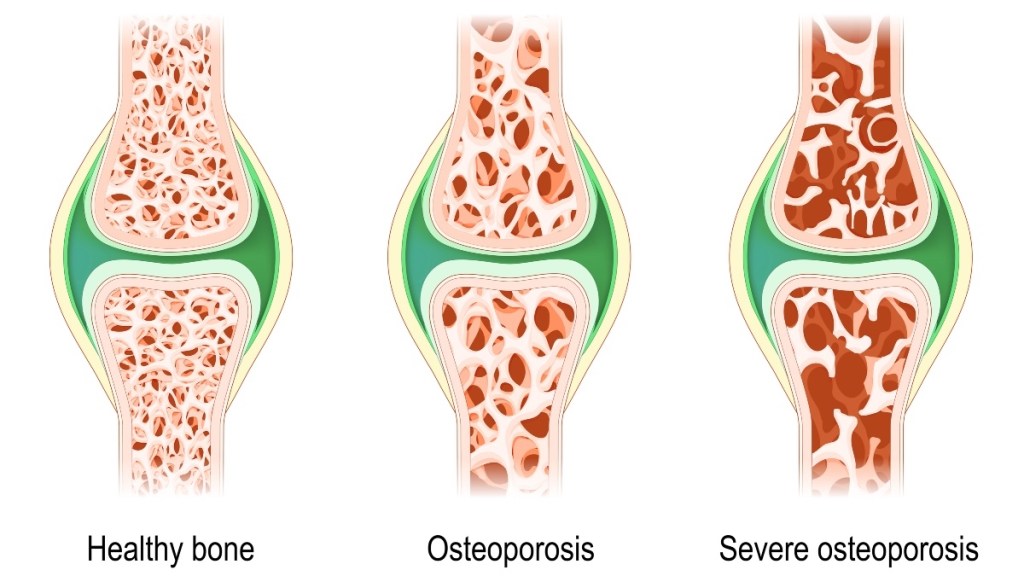
The best quercetin supplement
While you know that you can shore up your body’s quercetin levels by noshing on foods like apples, onions, tomatoes and broccoli, sometimes you want a more concentrated quercetin dose to help boost the benefits or speed results. That’s where supplements come into play.
While supplements have higher levels of quercetin, they have lower bioavailability. That means it’s harder for your body to fully absorb the compound. To make sure you’re getting the health-boosting dose, look for quercetin supplements that are pair with other vitamins, minerals and compounds that boost its absorption. This includes such nutrients as vitamin C and bromelain. Two supplements that fit the bill: Life Extension Vitamin C and Bio-Quercetin Phytosome (Buy from LifeExtension.com, $22.50) and Solaray Quercetin, Bromelain & Vitamin C (Buy from Amazon.com, $19.99).
Tip: If you prefer to get your quercetin fix through food, consider pairing it a dietary fat. That could be as easy as enjoying a few cubes of cheese with your apple or adding a pat of butter to your broccoli. A study in Current Research in Nutrition and Food Science dietary fat enhances quercetin’s bioavailability for better absorption.
Read on to discover more easy ways to boost your heart health:
6 Everyday Ways To Help Prevent Heart Disease — That Don’t Include a Pill or Doctor Visit
Keep Your Ticker in Tip-Top Shape — Here Are the Best Diets for Heart Health
4 Small Things You Can Do That May Help Improve Your Heart Health
This content is not a substitute for professional medical advice or diagnosis. Always consult your physician before pursuing any treatment plan.
First For Women aims to feature only the best products and services. We update when possible, but deals expire and prices can change. If you buy something via one of our links, we may earn a commission. Questions? Reach us at shop@firstforwomen.com





